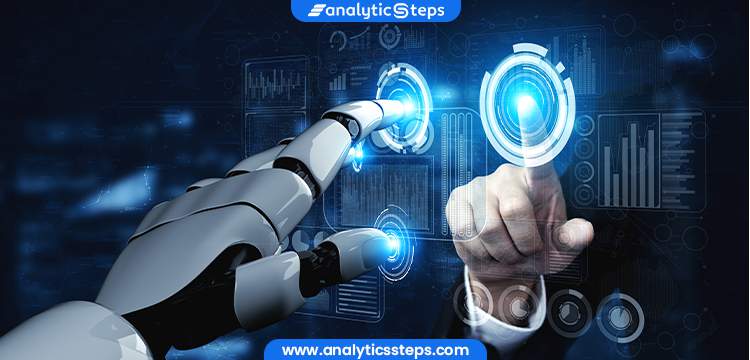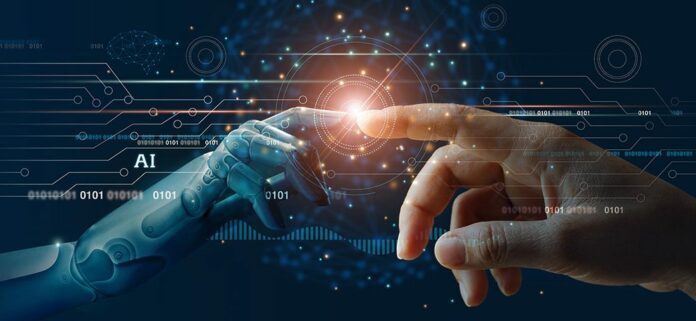Artificial Intelligence (AI) has emerged as a transformative technology that is revolutionizing various industries, including business. With its ability to mimic human intelligence and automate complex tasks, AI is playing a significant role in driving innovation and improving operational efficiency. This article explores the role of AI in business, highlighting its impact on innovation and automation.
Introduction
Artificial Intelligence refers to the development of computer systems that can perform tasks that typically require human intelligence. This includes activities such as decision-making, problem-solving, language processing, and pattern recognition. In the business context, AI is transforming how organizations operate, innovate, and engage with customers.

Understanding Artificial Intelligence
AI encompasses various technologies such as machine learning, natural language processing (NLP), computer vision, and robotics. Machine learning, in particular, plays a crucial role in AI, enabling systems to learn from data and improve performance over time without being explicitly programmed.
AI-driven Business Innovation
AI is a catalyst for innovation, enabling businesses to leverage data-driven insights and make informed decisions. Here are some key areas where AI is driving business innovation:
3.1 Enhanced Decision-making
AI-powered systems can analyze vast amounts of data and extract meaningful insights, enabling better decision-making. By uncovering patterns, trends, and correlations in data, businesses can gain valuable intelligence and make data-driven decisions with higher accuracy and speed.
3.2 Predictive Analytics and Forecasting
AI algorithms can analyze historical data and identify patterns to predict future outcomes. This enables businesses to forecast demand, anticipate customer behavior, optimize inventory management, and make proactive business decisions.
3.3 Personalized Customer Experiences
AI enables businesses to deliver personalized experiences to customers at scale. By leveraging customer data, AI systems can analyze preferences, behavior, and purchase history to offer tailored recommendations, personalized marketing campaigns, and targeted customer service.
3.4 Product and Service Innovation
AI fuels innovation by automating complex processes and enabling the development of new products and services. AI-driven technologies like natural language processing and computer vision are transforming industries such as healthcare, finance, manufacturing, and retail, leading to the creation of innovative solutions and enhanced customer experiences.
AI-powered Business Automation
Automation is a core benefit of AI, enabling businesses to streamline operations, increase efficiency, and reduce costs. Here are key areas where AI is driving business automation:
4.1 Streamlined Processes and Operations
AI automates repetitive and mundane tasks, freeing up human resources to focus on higher-value activities. From data entry and document processing to inventory management and quality control, AI-driven automation streamlines business processes and improves overall operational efficiency.
4.2 Intelligent Chatbots and Virtual Assistants
Chatbots and virtual assistants powered by AI are transforming customer service and support. These intelligent systems can understand natural language, answer customer inquiries, provide personalized recommendations, and handle routine tasks, leading to improved customer satisfaction and reduced response times.
4.3 Robotic Process Automation (RPA)
RPA leverages AI and machine learning capabilities to automate rule-based tasks performed by humans. Software robots can perform tasks such as data entry, invoice processing, and report generation, leading to significant time and cost savings.
4.4 Supply Chain Optimization
AI-driven optimization techniques can enhance supply chain management. From demand forecasting and inventory optimization to logistics planning and route optimization, AI helps businesses streamline their supply chain processes, reduce costs, and improve delivery efficiency.
Ethical Considerations
As AI becomes more prevalent in business, ethical considerations become paramount. Businesses need to ensure that AI systems are developed and used responsibly, addressing concerns such as data privacy, algorithmic bias, transparency, and accountability. Establishing ethical guidelines and adopting responsible AI practices are crucial for building trust and mitigating potential risks.
Challenges and Opportunities
While AI offers immense potential, it also presents challenges. Businesses need to address issues related to data quality and availability, talent acquisition and upskilling, integration with existing systems, and cybersecurity. Overcoming these challenges opens up opportunities for organizations to gain a competitive edge, improve customer experiences, and drive innovation.
Conclusion
Artificial Intelligence is a transformative technology that is reshaping the business landscape. By leveraging AI, businesses can drive innovation through enhanced decision-making, predictive analytics, personalized customer experiences, and product/service innovation. Additionally, AI-powered automation optimizes processes, improves operational efficiency, and unlocks new opportunities for businesses across various industries. To harness the full potential of AI, organizations must navigate ethical considerations, address challenges, and embrace the opportunities AI offers.
FAQs (Frequently Asked Questions)
Q1: What industries are benefiting the most from AI?
A1: AI is benefiting various industries, including healthcare, finance, retail, manufacturing, transportation, customer service, and marketing. These industries leverage AI to improve operational efficiency, enhance customer experiences, develop innovative products/services, optimize supply chains, and make data-driven decisions.
Q2: Is AI replacing human jobs?
A2: While AI automation may replace certain repetitive tasks, it also creates new opportunities. AI-driven automation frees up human resources to focus on higher-value activities that require creativity, problem-solving, and emotional intelligence. The future of work will likely involve a collaborative partnership between humans and AI technologies.
Q3: How can businesses ensure ethical AI use?
A3: Businesses should adopt ethical AI practices by ensuring transparency and explainability of AI systems, addressing algorithmic biases, protecting data privacy, and fostering responsible AI governance. Establishing clear guidelines and ethical frameworks, involving multidisciplinary teams, and regularly evaluating AI systems can help ensure ethical AI use.
Q4: What are some potential risks associated with AI in business?
A4: Risks associated with AI include data privacy breaches, algorithmic bias, lack of transparency, unintended consequences of AI decision-making, and cybersecurity threats. Businesses must proactively address these risks through robust data security measures, algorithmic fairness testing, ethical guidelines, and continuous monitoring of AI systems.
Q5: How can businesses leverage AI to gain a competitive edge?
A5: Businesses can leverage AI to gain a competitive edge by adopting AI-driven analytics for data-driven decision-making, implementing personalized customer experiences, automating routine tasks to improve operational efficiency, and using AI technologies for innovation and product/service development. Embracing AI as a strategic enabler can help businesses stay ahead in a rapidly evolving business landscape.


